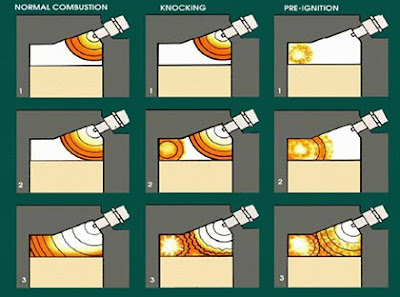Beginning September 1, RON92 petrol will be pulled from the market, and substituted with RON95 petrol at RM1.75 per litre. Also, by September 1, fuel subsidies for RON97 will be removed, making RON95 the only petrol subsidized by the government. RON97 petrol will become a premium fuel sold at RM2 per litre.

The introduction of RON95 and the removal of subsidies for RON97 were announced by the government many months ago, at a time when crude oil was hovering around 40 USD. Since then, crude has staged a strong recovery to 70 USD. If this current price persists, which I think it should, the pump price of unsubsidized RON97 will naturally go beyond the RM2 per litre first suggested by the government.
Now these figures may not bode well for those with constrained budgets. 90% of drivers use RON97 today. If they opt for RON95 instead, will that change affect their cars adversely?
Last Thursday, I attended a Chevron workshop that talked about the RON95 transition. In the midst, they threw in an interesting presentation about RON and fuels in general. I feel compelled and obligated to explain what I learned about RON here as I know there are a lot of public misconceptions over RON. :)
Firstly, RON stands for Research Octane Number. It is a common type of octane rating (another type is Motor Octane Number) used to measure the petrol's qualities to resist igniting prematurely and spontaneously under extreme pressures and heat inside the combustion chamber, causing a phenomenon known as "engine knocking".
Under normal circumstances, the combustion is started by the engine's spark plug in an orderly and controlled fashion. However knocking occurs when the fuel spontaneously ignites in small pockets, under the heat and pressure of the combustion chamber, outside the controlled spark from the spark plug. This abnormal combustion increases the pressure in the chamber, resulting in a knocking sound and potentially causing engine damage.

The higher the RON numeration, the higher the percentage of iso-octane in the fuel mixture, the more resistant the petrol is in igniting spontaneously. Petrol with higher RON ratings is recommended for use in high performance vehicles where their engines run higher compression ratios, and therefore are more prone to engine knocking.
Myth #1 - I am currently a RON97 user. Switching to RON95 will damage my car engine.
The only difference between RON97 and RON95 is their octane ratings, indicated by the octane number in the product name. Using petrol of a lower RON may or may not hurt your car. You just need to find a suitable fit for your car and driving style. It’s best to refer to the Original Equipment Manufacturer’s (OEM) recommendation in your car manual or check the back of the petrol filler lid of your car for the recommended octane rating. RON95 works good for most vehicles on the road today.
Myth #2 - Higher RON petrol gives my car that extra power and performance.
Again, another misconception. Higher RON petrol does not give more performance. In fact, putting in petrol with a higher RON rating than the manufacturer's recommended specifications won't provide any significant benefits. The important point is, not using one that is lower than manufacturer's recommendation, because when you use petrol with an octane level lower than required, knocking may result.
Shell's V-Power is a RON98 fuel. It enhances performance and responsiveness. But this is not due to the higher octane number. Rather it is the combustion enhancer addictive Shell added to make the fuel burns better. It doesn't improve fuel consumption either. In Singapore for example, Shell sells Formula 98 and V-Power. Both are RON98 petrol.
Lastly, the diagram below shows the fuel sales in different continents around the world. RON95 is the main grade sold in Europe. And RON91/RON92 are most popular in many countries.

Monday, June 29, 2009
Clearing Up Misconceptions over RON
Subscribe to:
Post Comments (Atom)


No comments:
Post a Comment